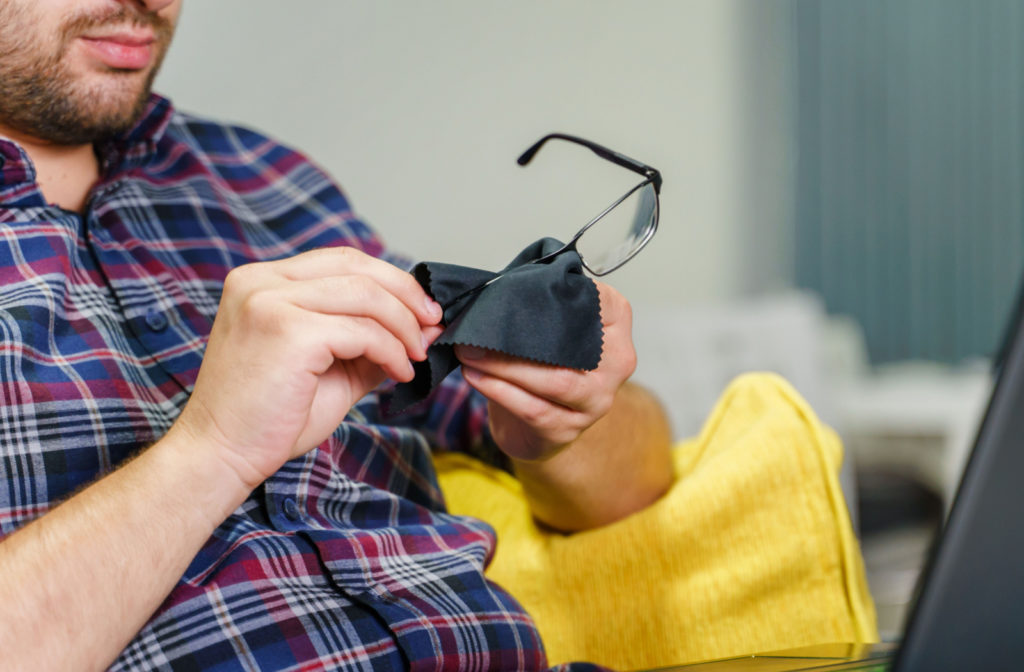If you’re experiencing difficulty reading and seeing objects from a distance, bifocal glasses could be a solution to your vision problems. As we age, our eyes undergo changes that affect how we see and perceive the world around us. Bifocal lenses are designed to address these changes and help us see more clearly.
Bifocal glasses are prescription glasses that feature lenses with two distinct areas with different prescriptions. The upper part of the lens is designed for distance vision, which can correct a refractive error such as myopia or astigmatism. While the lower part is designed for reading or close-up vision and can correct a refractive error like presbyopia or hyperopia.
Bifocal glasses may also be beneficial for amblyopia or some cases of strabismus in children.
How Bifocal Glasses Work
Bifocal glasses are prescription glasses that feature lenses with two distinct areas with different prescriptions. The upper part of the lens is designed for distance vision, which can correct a refractive error such as myopia or astigmatism. While the lower part is designed for reading or close-up vision and can correct a refractive error like presbyopia or hyperopia.
The two prescriptions are separated by a line that runs horizontally across the middle of the lens. This line is called the “seg” line and is a visible point of separation between the two prescriptions. Bifocal glasses work by allowing the wearer to switch between upper and lower prescriptions for clear vision in each scenario.
Types of Bifocal Lenses
There are numerous types of bifocal lenses available, including traditional bifocals, blended bifocals, and progressive bifocals.
Traditional bifocal glasses have a distinct edge between the two prescriptions, resulting in the visible seg line. Blended bifocal lenses are designed to create a smoother transition between the two prescriptions, eliminating the visible line. Progressive bifocals increase the range of intermediate vision and eliminate the need for multiple pairs of glasses.
A traditional bifocal typically comes in 1 of several segment shapes:
- Half moon: The segment has a flat top and is shaped like a sideways “D”
- Round: A round area in the lens with the different prescription
- Ribbon: Segment is a narrow rectangular area in the lower part of the lens
- Executive: The entire bottom half of the lens has a different prescription
Bifocal Contact Lenses
Getting bifocal lenses isn’t only possible with eyeglasses—bifocal contact lenses may also be an option for some people who need multiple corrections but don’t want to get eyeglasses or wear reading glasses.
Bifocal contact lenses are available in various materials like a traditional contact lens. You will probably have to get a contact lens fitting exam from your optometrist to determine whether bifocal contact lenses are right for you if you’re interested in trying them.
Benefits of Bifocal Glasses
Bifocal glasses are beneficial for those with vision problems such as presbyopia, which is a common age-related condition where the eyes struggle to focus on nearby objects. With bifocal glasses, you don’t have to switch between different pairs of glasses, making it more convenient and easier to carry out daily activities.
But bifocals aren’t restricted to correcting the age-related presbyopia. They may also be beneficial for someone with any number of refractive errors, such as hyperopia, myopia, or astigmatism. These conditions all affect our vision a little bit differently.
Although less common, bifocals may help support a child’s eye-focusing systems to help correct amblyopia or some forms of strabismus.
Getting the Right Bifocal Glasses for You
If you need bifocal glasses, it is important to visit an eye doctor to have your eyes examined and get the proper prescription. The optometrist can perform a comprehensive eye exam, which includes a visual acuity test, to determine the correct prescription or prescriptions for your eyes.
It’s also important to ensure the frames and lenses you choose are comfortable and fit correctly. An expert optician can help you find the right pair of bifocal glasses that suit your needs and preferences.

Caring for Your Bifocal Glasses
It’s important to take care of your bifocal glasses to extend their life. Always use a microfiber cloth and a suitable cleaning solution to clean them. Avoid using harsh chemicals, saliva, or abrasive materials that can damage the lenses or encourage bacterial growth.
Store them in a protective case when not in use, and avoid leaving them in hot or humid conditions. Regularly check the frames for signs of wear and tear and replace the glasses when necessary. Your optometrist may be able to help with some basic maintenance or replacement parts of some frames. So, if you do notice any issues, check back with your eye doctor.
Talk to Your Eye Doctor About Bifocal Glasses
Bifocal glasses may be an ideal solution for those with various vision problems and can provide significant benefits in improving visual acuity and enhancing everyday activities.
Contact our team at Hercules Optometric Group to book your next eye exam, and let us help you see clearly and comfortably.



